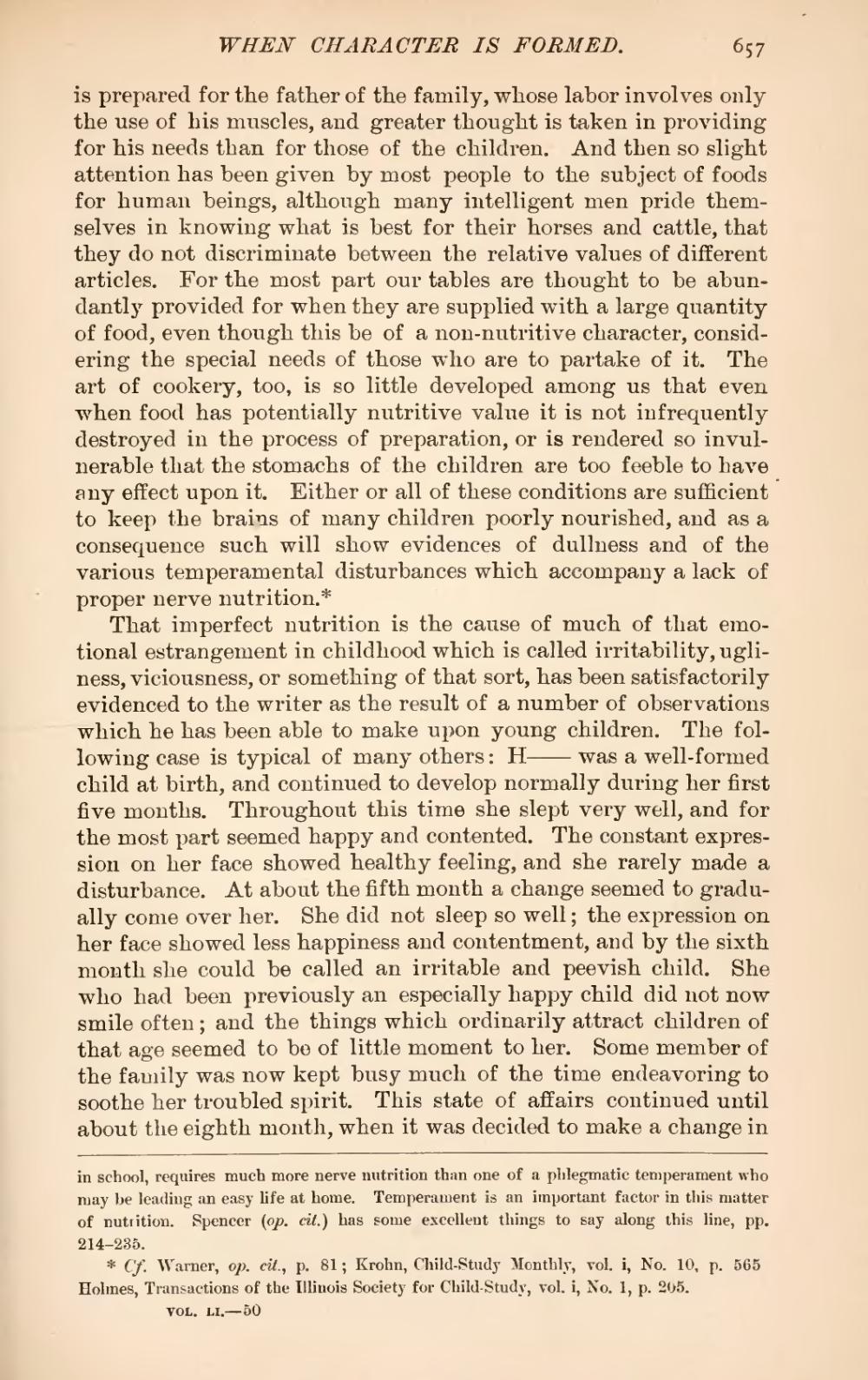is prepared for the father of the family, whose labor involves only the use of his muscles, and greater thought is taken in providing for his needs than for those of the children. And then so slight attention has been given by most people to the subject of foods for human beings, although many intelligent men pride themselves in knowing what is best for their horses and cattle, that they do not discriminate between the relative values of different articles. For the most part our tables are thought to be abundantly provided for when they are supplied with a large quantity of food, even though this be of a non-nutritive character, considering the special needs of those who are to partake of it. The art of cookery, too, is so little developed among us that even when food has potentially nutritive value it is not infrequently destroyed in the process of preparation, or is rendered so invulnerable that the stomachs of the children are too feeble to have any effect upon it. Either or all of these conditions are sufficient to keep the brains of many children poorly nourished, and as a consequence such will show evidences of dullness and of the various temperamental disturbances which accompany a lack of proper nerve nutrition.[1]
That imperfect nutrition is the cause of much of that emotional estrangement in childhood which is called irritability, ugliness, viciousness, or something of that sort, has been satisfactorily evidenced to the writer as the result of a number of observations which he has been able to make upon young children. The following case is typical of many others: Hwas a well-formed child at birth, and continued to develop normally during her first five months. Throughout this time she slept very well, and for the most part seemed happy and contented. The constant expression on her face showed healthy feeling, and she rarely made a disturbance. At about the fifth month a change seemed to gradually come over her. She did not sleep so well; the expression on her face showed less happiness and contentment, and by the sixth month she could be called an irritable and peevish child. She who had been previously an especially happy child did not now smile often; and the things which ordinarily attract children of that age seemed to be of little moment to her. Some member of the family was now kept busy much of the time endeavoring to soothe her troubled spirit. This state of affairs continued until about the eighth month, when it was decided to make a change in
- ↑ Cf. Warner, op. cit., p. 81; Krohn, Child-Study Monthly, vol. i, No. 10, p. 565 Holmes, Transactions of the Illinois Society for Child-Study, vol. i, No. 1, p. 205.
in school, requires much more nerve nutrition than one of a phlegmatic temperament who may be leading an easy life at home. Temperament is an important factor in this matter of nutrition. Spencer (op. cit.) has some excellent things to say along this line, pp. 214-235.

